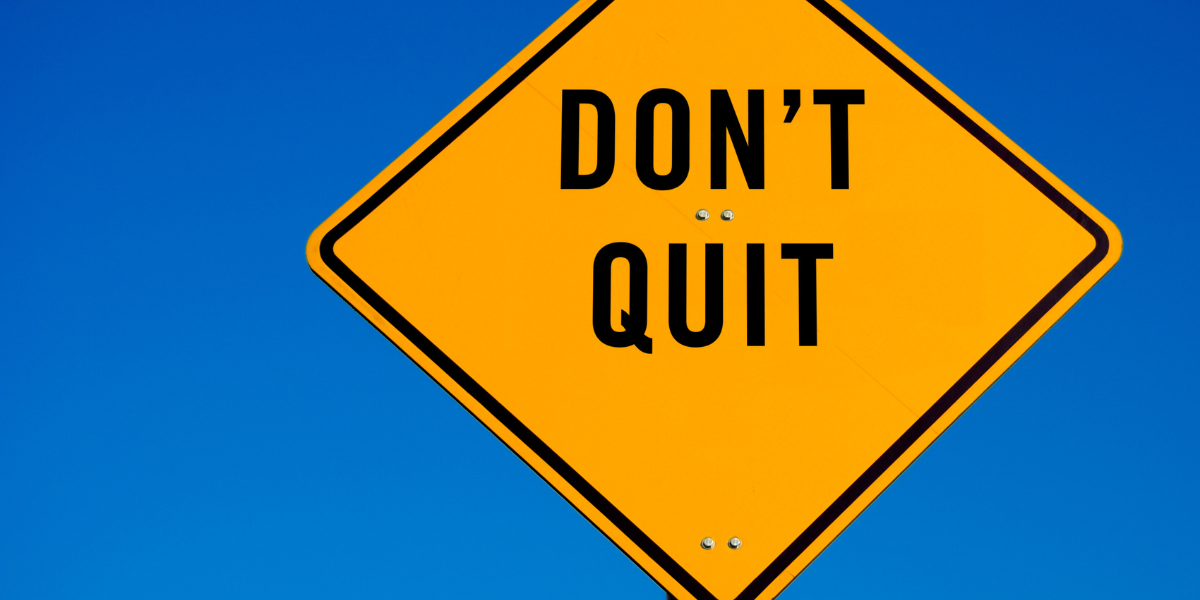
Why people quit veganism + how to overcome it
We're just going to state the obvious: Most people quit veganism.
Yes, even those who committed to it wholeheartedly for the animals.
And yes, even people who did it for years.
Misinformation is the common factor. Experience doesn't necessarily equate to mastery for vegans. That's because a comprehensive understanding of plant-based nutrition isn't commonly held.
The majority of ex-vegans cite feeling hungry all the time, nutrient deficiencies, feelings of social isolation, challenges while travelling, and issues with weight management.
The good news is that you can live a long, healthy life on a plant-based diet. But this blog post is about embracing the failed experiences of others to reassure and inform vegans everywhere that they don't have to end up in the same spot.
1. Health
Protein
In India, despite 38% of the population identifying as vegetarian and boasting the lowest per capita meat consumption in the world, a robust understanding of nutrition on a plant-based diet isn't as widespread.
The Indian diet, which is closely tied to a vegetarian diet, is known for being high in carbs, low in protein, and high in calories.
Many people don't realise you can eat any way you want, including a high-protein plant-based diet. But how?
Here are some vegan foods with more protein than meat per 100g:
- Vital wheat gluten: 75g of protein per 100g
- Spirulina: 66.7g of protein per 100g
- Nutritional yeast: 60g of protein per 100g
- Peanut butter powder: 54g of protein per 100g
- Soya chunks: 52g of protein per 100g
- Hulled hemp seeds: 31.6g of protein per 100g
Source: USDA
For comparison, cooked chicken breast (the leanest of them all) contains 31g of protein per 100g (source: USDA.)
Another thing that gets lost is how to maximise protein per meal. The way to do this requires processing, because consuming whole beans alone doesn't work, folks.
Instead, you need to mash, soak, grind, ferment, blend, or sprout protein sources to unlock their full potential (and make them tastier, too!)
The other way to get more protein on a plant-based diet is to combine high-protein foods together in the same meal. Combine sprouted beans with tofu, sprouted chickpea hummus with whole grain pita, shredded soya chunks with hemp seeds, peanut butter powder with soya milk, and so on.
Getting 150g of plant-protein or more per day is entirely possible for vegan athletes, even without protein powders or supplements. The key is understanding which foods to eat and how to combine them.
If you stop consuming meat, dairy, fish, and eggs and don't find a way to replace the protein in these foods to maintain your previous lifestyle, you won't feel your best!
Calories
New vegans often report some initial weight loss.
When you remove foods you eat regularly without replacing their calories, you'll sink into a calorie deficit.
A calorie deficit isn't some magical property of plant-based eating. Instead, it comes from a lack of awareness about how and where to replace the calories you lost overnight.
According to the NHS guidelines, women require 2,000 calories per day, while men require 2,500 calories per day.
Why are calories so important?
Calories fuel body functions like respiration and maintaining a steady heart rate. You probably see where this is going.
By not consuming enough calories, you may experience the following symptoms:
- Fatigue
- Hunger
- Hair loss
- Nutrition deficiencies
- Irregular periods
- Brittle fingernails
- Sleep problems
- Frequent illness
So, if you're struggling to increase calories in a healthy way (i.e. by not just consuming more fried and processed foods), try adding more of these foods into your diet:
- Avocados
- Nuts & seeds
- Nut & seed butters
- Dried or fresh fruits
- Whole grains: Quinoa, rice, oats, pasta
On the other hand, vegans who rely heavily on processed foods and eat out a lot will experience weight gain. These foods pack more calories than whole, unprocessed foods. Balance is important!
At the end of the day, everyone is on their own journey. But adequate calorie intake is vital, regardless of whether you're vegan or not.
B12
A study published in 50 Cell found that 1 out of every 5 vegans has a B12 deficiency.
Why is B12 so important, especially for vegans?
B12 is necessary for our body's blood and nerve cells, it's instrumental in DNA synthesis, and it helps provide energy.
But where does B12 come from? It's exclusively synthesised by certain bacteria and archaea.
Contrary to popular belief, it doesn't derive from animal products; rather, it lurks in the soil, untreated water, and other unsanitary sources. Given the hygienic standards of modern agricultural practices, coupled with a plant-based diet, a B12 supplement is imperative for vegans.
But non-vegans aren't immune either. In fact, nearly half of all US adults have low B12 levels.
Adding to the complexity, B12 can be stored in the body for a long time (around 2 to 5 years), so it can take years to develop a deficiency if you're not regularly supplementing. One too many vegans are completely unaware of this fact.
B12 deficiency symptoms include, but aren't limited to:
- Muscle weakness
- Difficulty walking
- Nausea
- Irritability
- Fatigue
The bottom line is to always supplement with B12, whether you're a vegan or not, because a B12 deficiency can cause permanent damage to your body. It's that serious.
Cravings
Ex-vegans often say something along the lines of: "I just had to have some cheese again, my body was craving it!"
But what truly lies behind the urge for certain foods?
Food cravings are a universal experience, shared by both vegans and non-vegans alike.
Broadly speaking, men are more likely to crave savoury foods, while women tend to crave more indulgent, high-fat sweets.
Several factors can trigger a craving, including:
- Seeing, smelling, or hearing about a specific food
- Hormonal imbalances, particularly serotonin and leptin
- Strong emotions or high-stress
- Nutrient deficiencies
The good news is that it's possible to curb cravings or even get rid of them altogether. It's incredibly simple, too:
- Get enough sleep
- Eat enough protein
- Eat enough calories
- Drink enough water
- Manage stress
Anyone who is malnourished, practises bad eating habits, and doesn't prioritise their health will experience intense food cravings and resort to foods that are familiar to them. That's really what it boils down to for most people.
No nutrient is out of reach for anyone on a plant-based diet. Cravings for meat, dairy, fish, and eggs are more a reflection of someone's restrictive eating habits. A plant-based diet is all about abundance!
2. Lack of support
An American study conducted by Faunalytics found that 84% of vegans and vegetarians abandon their diets.
Among the many factors contributing to this, 63% of people reported that they felt like they stuck out a little too much.
This reveals an unsurprising truth, which is the human need for acceptance and belonging.
Finding friendship, support, and community for new vegans is just as important as maintaining all the relationships prior to your transition.
Vegans all too often separate themselves from society, family, and even long-term relationships because of the intensity of their new lifestyle. In return, they are avoided and misunderstood. Over time, this can create resentment and a sense of isolation.
Unfortunately, navigating conflict is inevitable. Not even your best efforts to explain the well-intentioned reasons behind your decision will be respected by everyone.
There isn't much you can do, other than to foster as much open communication and mutual understanding as you can. The other option is to not engage at all. But who wants to live in the dark?
Take it from us: We know from experience that with a lot of time, sincerity and patience, even the most dismissive folks can find respect and understanding for your decision.
This is why finding support and commonality with like-minded individuals is so important, especially in the beginning. Check out some local FB groups, IG pages and potlucks to find the community you belong to. Who knows, you might find a best friend or even a spouse!
3. Inconvenience & cost
One of the most common reasons people stop being vegan or vegetarian is their perceived increase of cost for food, along with the inconvenience that comes with it.
In general, beans, lentils, whole grains, and fresh produce are much cheaper than animal products. A plant-based diet starts getting expensive when people seek out unique experiences, premium products, and fancy restaurants.
If you live in India, it's even easier and cheaper to live on a plant-based diet.
Consider the Indian diet and all its glorious staples:
- Pulses, cereals, grains, legumes, beans, daal
- Fruits and vegetables
- Nuts and seeds
- Spices and herbs
- Oils
What is Indian food without any of these staples? Even non-vegetarians in India are already consuming the vast majority of their calories and nutrients from plant-based foods.
Everyone’s favourite dishes are already plant-based by default:
- Masala dosa
- Idly vada
- Chutney & sambhar
- Daal & chapati
- Veg fried rice & veg noodles
- Chana masala
- Samosa
- Chaat
- Lemon/tomato/coconut rice
- Biryani
- Saagu
- Poha
- Pakora
- Momos
- Mushroom/potato/gobhi manchurian
- Bisi bele bath
- Rajma
And the list goes on.
And contrary to what people think, these foods are all very affordable and accessible in India. Being vegan is just about going back to our ancient roots in vegetarian food and compassion for animals.
Conclusion
Prioritising your health is something everyone is responsible for. Scrutinising vegans is easy, but in reality, there are at least a billion non-vegans on this planet who aren't thriving. No one says anything about that.
There's no escaping the fact that we all need to see a doctor, get blood work done, watch what we eat, and move a little more to lead a longer, healthier life.
A plant-based diet is healthy for anyone, with any goal, at any stage of life, provided they are getting enough protein, calories, fats, and taking their B12 supplements. That's it!
Let us know what you think in the comments, and don't forget to share!


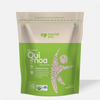
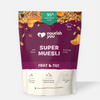
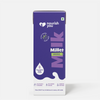
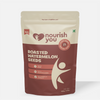
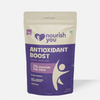
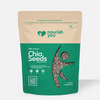
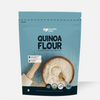
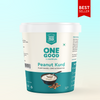
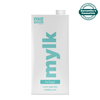
Comments
Leave a comment